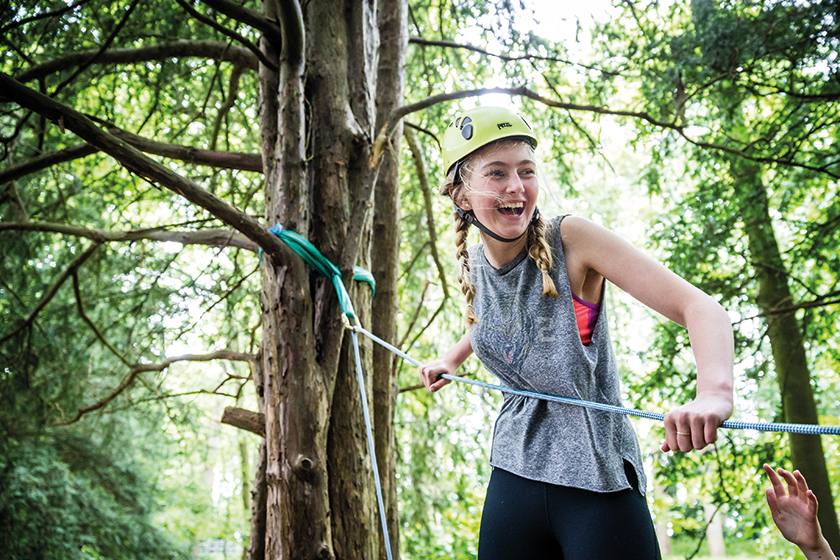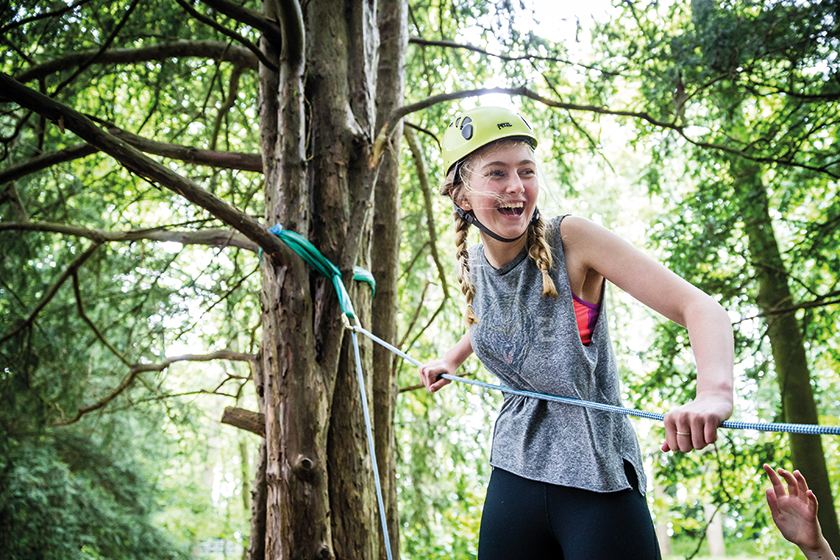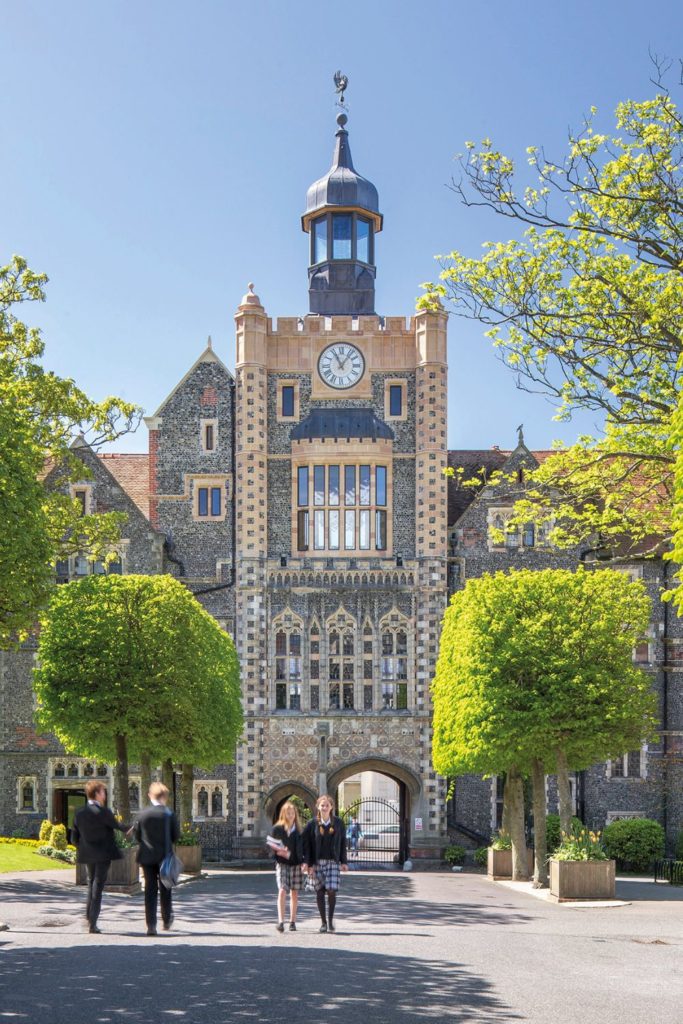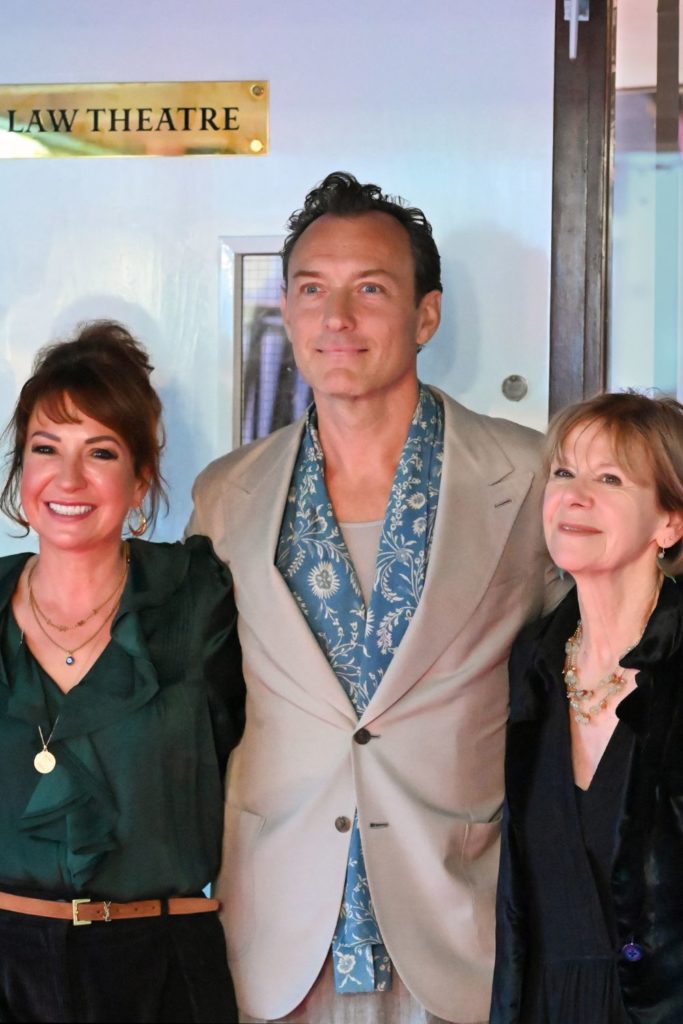What are the Benefits of Adventure Education?
By
8 years ago
Sam Moore can offer more than a few reasons on why getting out in the great outdoors is a good idea

Sam Moore leads the adventure education programme at Dauntsey’s in Wiltshire. He explains why conquering fears is so good for teenagers.
My teenage years are some way behind me now. But not so long ago that I can’t vividly recall the pressure I felt sitting public examinations. It’s fair to say that today this pressure has only increased as universities demand ever-higher grades and parents expect a good return on their significant investment in school fees.
The one thing that kept me sane then, and still provides an escape for me now, was the ability to get outdoors in order to explore and experience adventure. Not only does adventure help children let off steam, it plays a vital role in equipping them with the necessary skills to set them up for life after school.
Risk assessment
Understanding risk, and not shying away from it, is an important life skill. Adventure education introduces pupils to risk assessment in a supportive school environment. They go on to demonstrate and adopt behaviours that will help them lead a productive and interesting life. One in which they are organised and flexible, willing to have a go and open to learning from their experiences.
Regrettably, we live in an increasingly risk-averse world. Our perception of danger, along with a range of health and safety guidelines, can make delivering truly adventurous experiences at school something of a challenge. Parents are, understandably, concerned about their children’s wellbeing. However, with detailed parent briefings, clear communication, careful planning and a bit of imagination, it can be achieved.
Leadership skills
Pupils who are relatively quiet and cautious by nature, grow in confidence and are willing to take on new experiences. Those who you might not immediately view as ‘the outdoors type’ demonstrate great resilience and good humour in the face of adversity. Pupils learn to be as concerned for others as they are for themselves and the more confident ones learn to follow leadership before they are then able to lead. Most importantly, they are able to admit and then correct their mistakes.
Exploration inevitably involves a few wrong turns. We work on building the confidence needed to tackle challenges pupils may not believe they can do, safe in the knowledge that, if things go wrong, we are here to guide their learning. Pupils’ confidence and self-esteem rise dramatically as a result. They discover what can be achieved – often under challenging conditions. This pays back noticeable dividends in the classroom in terms of academic progress.
Adventure education at Dauntsey’s
Our adventure programme at Dauntsey’s is made up of two aspects: accessible adventure and high adventure.
-
Accessible adventure
Experiences that are shorter in duration and involve large numbers of pupils. This may include learning to kayak on the Kennet and Avon canal, camping in the school grounds, or a night hike on Salisbury Plain. These activities serve both as educational experiences in their own right and as a gateway to the high adventure programme for the pupils. The potential for danger is much lower, hence the term ‘accessible’.
-
High Adventure
A relatively small group go on longer-haul trips, normally with a high staff to pupil ratio. This type of adventure typically requires time and dedication from the pupils. They have to work hard to develop specific skills and achieve competence at a given activity, which will allow them to explore remote or challenging environments.
Risk is greater in high adventure and care must be taken to ensure that participants are ready and willing to engage with it. Parental reassurance and involvement is crucial, not just from a safety perspective but also to help encourage and motivate participants when the going gets tough. Examples of high adventure might be participating in the Devizes to Westminster canoe race, trekking in the Himalayas or crewing our tall ship Jolie Brise.
I have been lucky enough to develop a career out of adventure but I would argue that adventure activities at school create a platform for pupils to set themselves apart and, as a consequence, develop into the person that they aspire to be. In short, what you learn through adventure education can have a profound effect on the development of your character and your entire future.




